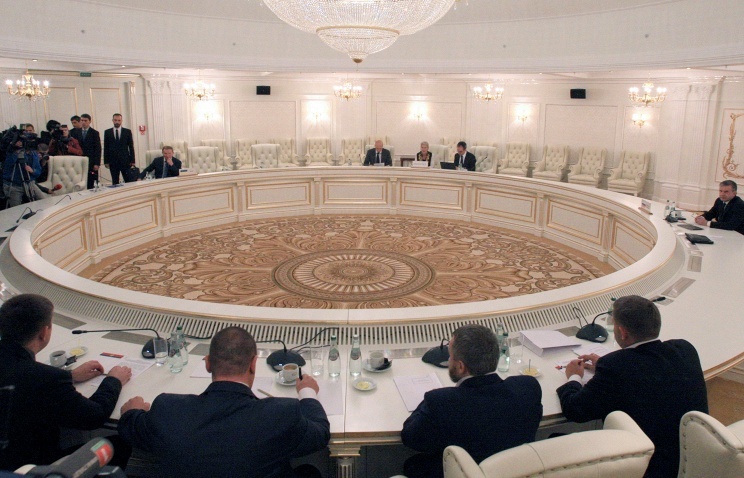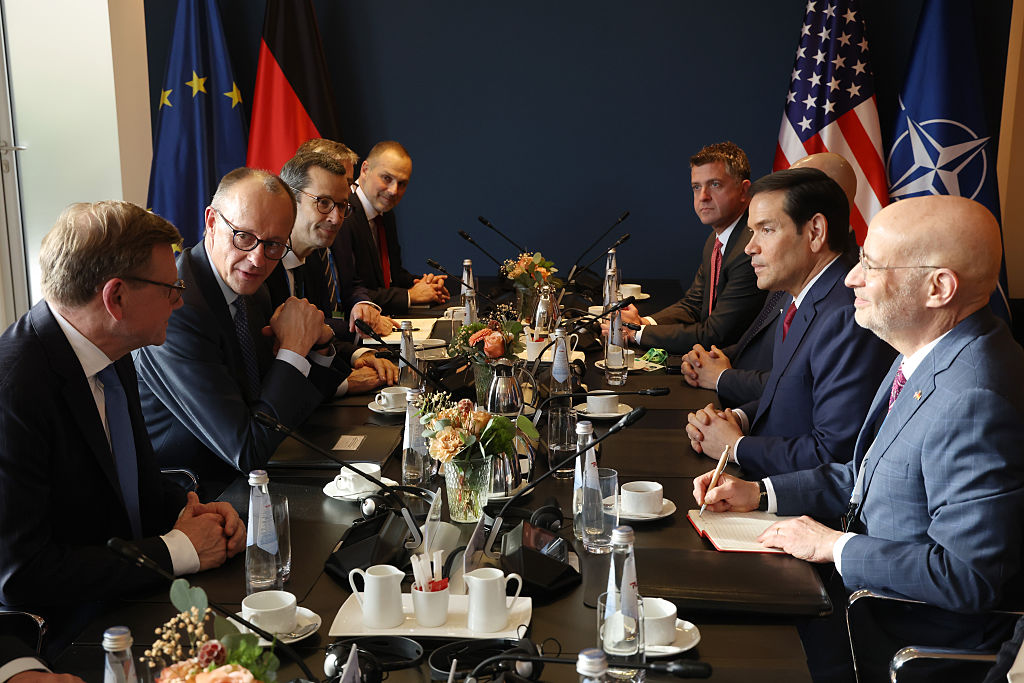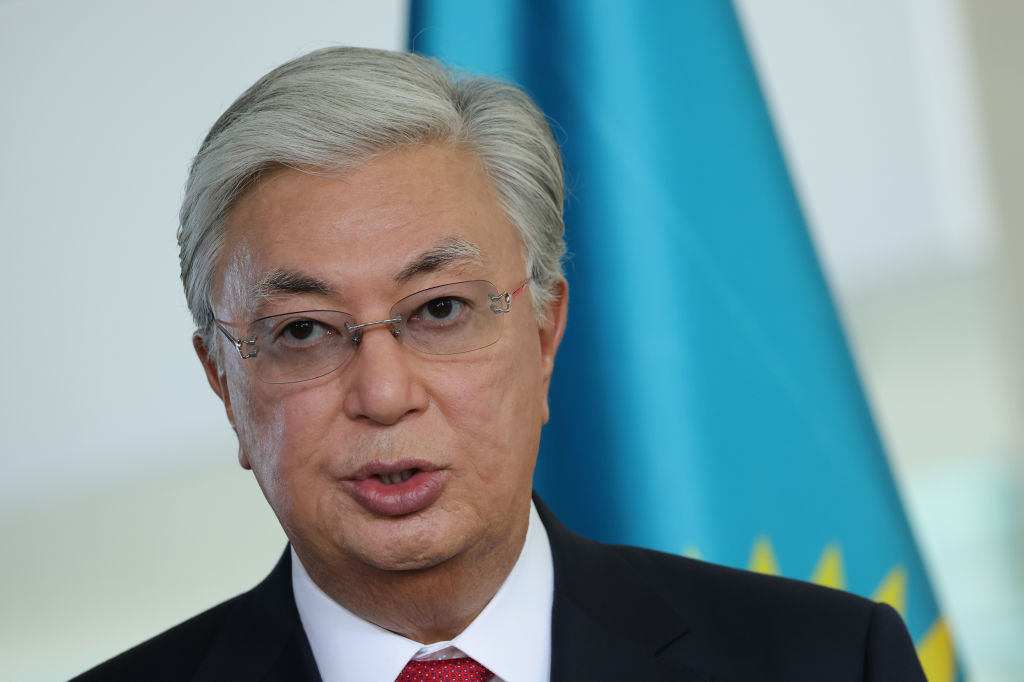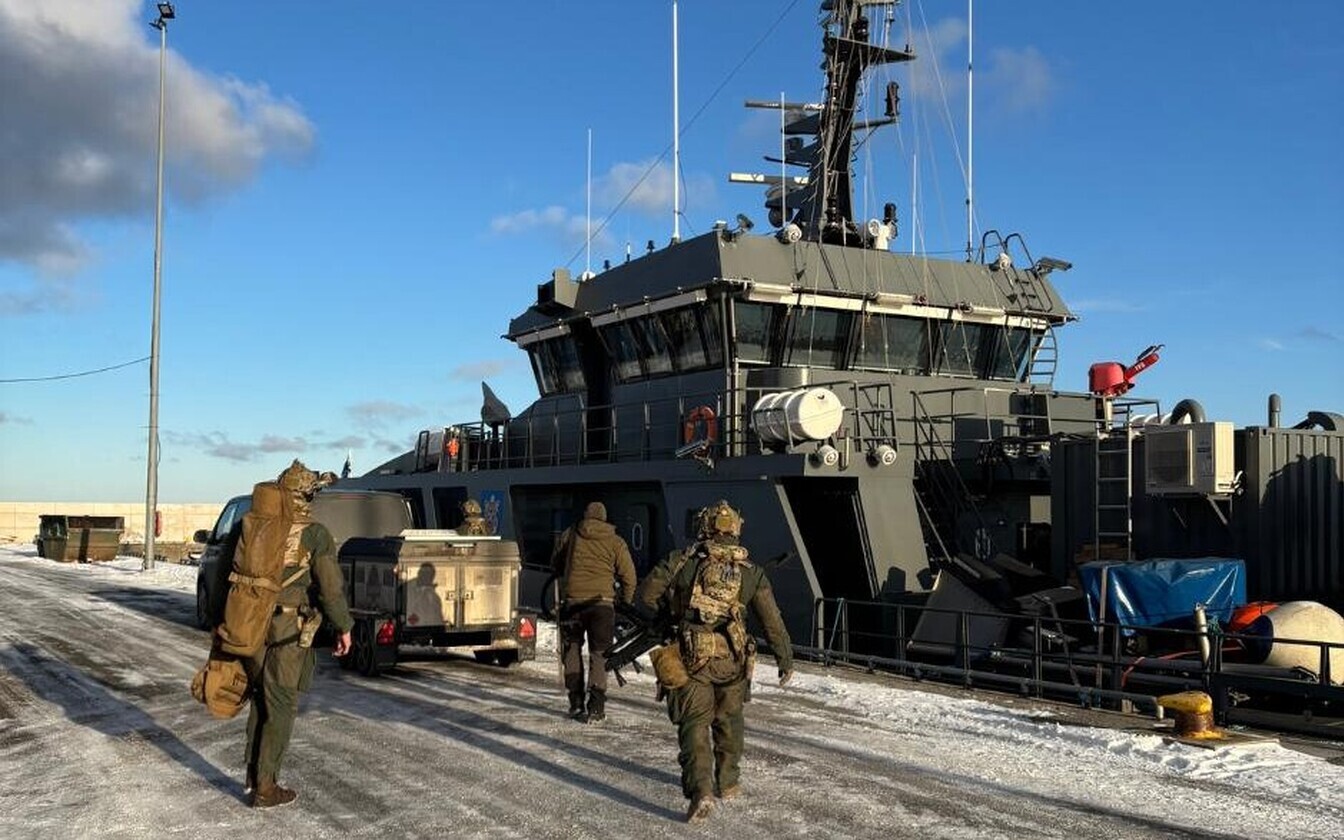
Ukraine Designates Legitimate Representatives of Donetsk and Luhansk in the Minsk Process (Part One)
Ukraine Designates Legitimate Representatives of Donetsk and Luhansk in the Minsk Process (Part One)
Kyiv has appointed pro-Ukraine refugees from the Russian-occupied Donetsk and Luhansk to represent those territories in the Minsk Contact Group, the forum that negotiates the implementation of the Minsk “agreements.”
For the first time in almost six years, pro-Ukraine delegates, acting on behalf of those territories, sat in the Minsk Contact Group’s session (held by video-conference) on June 9–10 and technically continuing today (June 15) (Ukrinform, June 9–15).
Russia’s proxies in Donetsk and Luhansk had, from 2014 until now, monopolized the representation of those territories in the Minsk Contact Group. They will remain entrenched there. Ukraine’s move, however, de-monopolizes those territories’ representation and explicitly challenges those proxies’ legitimacy.
Kyiv has selected “internally displaced persons” (IDP), native to the Donetsk and Luhansk territories and forcibly displaced to Ukraine’s interior, to speak for the IDPs as well as for the occupied territories’ population in the Minsk Contact Group. Their official status is that of members of Ukraine’s delegation, as invited guests with the title of advisors. They are not there as government employees but as independent citizens, representing not the Ukrainian state but the people of this territory, displaced or non-displaced (Liga.net, June 9–14).
Their participation does not in any way reduce or impair the Ukrainian government’s sovereign prerogative to represent, and speak for, the Russian-occupied Donetsk and Luhansk and the population there. These advisors will, however, add expertise, political credibility, and authenticity to Kyiv’s legal title to speak for those “certain areas of the Donetsk and Luhansk provinces” (official acronym ORDLO as per the Minsk “agreements”).
Ukraine’s government simply notified the other two full-fledged members of the Contact Group—Russia and the Organization for Security and Cooperation in Europe (OSCE)—that Kyiv has appointed these new delegates and has invited them into the Minsk forum. This procedure mirrors Russia’s and the OSCE’s procedure with ORDLO’s representatives. The Contact Group is officially named Trilateral, but nevertheless operates “with the participation of representatives of ORDLO.” The latter are “invited” by Russia and approved by the OSCE as the moderator (Ukraiynska Pravda, June 11).
Unlike Kyiv’s newly appointed delegates, who are integral to Ukraine’s delegation, ORDLO has two delegations (Donetsk and Luhansk) ostensibly distinct from Russia’s delegation. This ambiguous construction allows Moscow to pose as mediator between Kyiv and Donetsk-Luhansk, even as Kyiv rejects any official dialogue with them and would only negotiate officially with Russia’s delegation in the Minsk Contact Group. Under the Minsk “agreements,” however, the legal and political parameters of conflict resolution must be negotiated and agreed upon between Kyiv and the “representatives of ORDLO” (giving these the veto power on Moscow’s behalf).
ORDLO was and remains the designation of a physical territory (that under Russian control de facto since 2014–2015). Russia, however, set up the Donetsk and Luhansk “people’s republics” as political, proto-state structures on the ORDLO territory through “elections” in 2014 and 2018. The Minsk “agreements” and the ensuing Minsk process do not recognize the “people’s republics,” but only refer to ORDLO as a geographical territory. Nevertheless, those two “republics” have acted on behalf of ORDLO as political entities from 2015 onward. Top leaders of the “people’s republics” from time to time participated in the Minsk process negotiations. Those leaders’ appointees (confirmed, moreover, by the “people’s republics’ parliaments“) permanently represented ORDLO in the Minsk Contact Group from 2015 onward. The OSCE characteristically went along with this Moscow-staged farce, conflating the territorial ORDLO with the political “republics,” even as Kyiv refused to deal with them.
The Minsk “agreements” (and subsequent negotiating record), however, do not specify who “ORDLO’s representatives” may be, nor indicate who would designate or appoint them. Nowhere is it written that the “people’s republics’ ” representatives have a right, let alone an exclusive right, to represent the ORDLO territory in the Minsk process or anywhere. This is the starting premise to Kyiv’s argument about de-monopolizing ORDLO’s representation in the Minsk Contact Group.
Next, Kyiv points out that ORDLO’s-cum-“people’s republics’ ” representatives are citizens of Russia as well as politically subordinated to it. They are legally unqualified to represent ORDLO within Ukraine’s political system (as is their official goal and Moscow’s in the Minsk process) since Ukrainian law precludes Ukrainian-Russian citizenship. In the run-up to the Contact Group’s June 9 convening date, Ukrainian diplomats at the OSCE and elsewhere displayed copies of the Russian passports of Donetsk and Luhansk leaders and their representatives in the Minsk process, as added evidence of their illegitimacy.
As a corollary, Kyiv argues that it needs legitimate “representatives of ORDLO” (as per the Minsk “agreements”) with whom to discuss the implementation of those documents’ political clauses: mainly a “special status of ORDLO,” local elections and the return of IDPs to their homes. The Ukrainian delegation’s newly appointed members could be legitimate representatives, both of ORDLO’s remaining resident population and of the IDPs currently in Ukraine’s interior.
This argument amounts to strict-constructionism of the Minsk “agreements.” As such, it might even restore some degree of credibility to these justly discredited documents. Russia and its proxies interpreted these “agreements” at their discretion, with the OSCE’s tacit consent. They disguised the two Minsk-violating “people’s republics” under the Minsk-abiding ORDLO’s mantle; consigned the territory’s population to being represented by Moscow’s proxies; and deprived the IDPs of any representation in the Minsk negotiating process. Kyiv’s creative gamble stands some chance of rectifying this situation.


